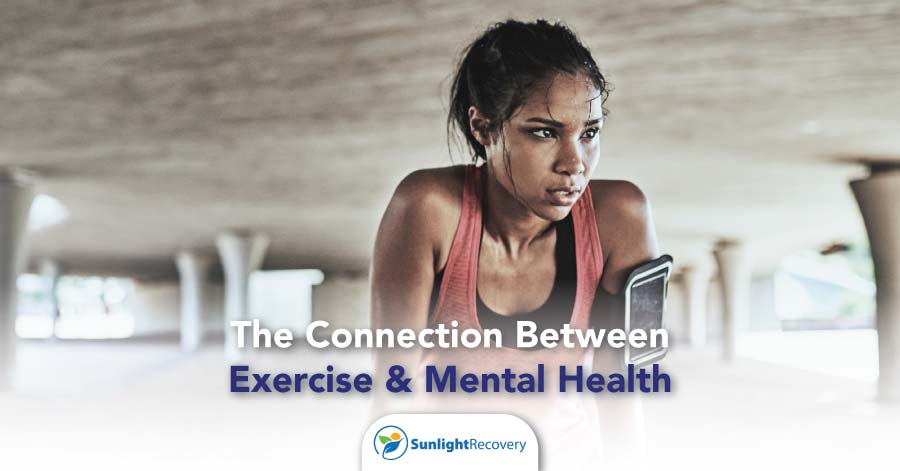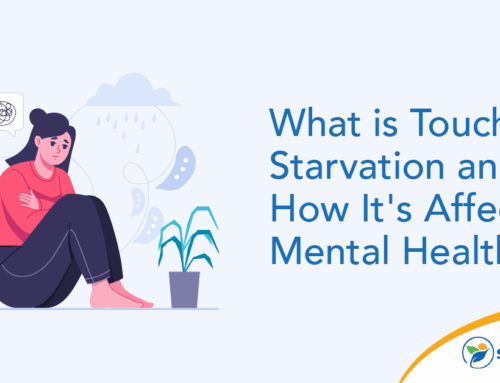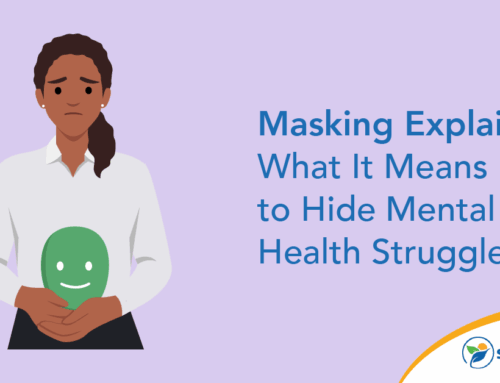Depression and anxiety rates are at their highest recorded levels in many developed countries including the United States, China, India, and the United Kingdom. There are a number of different aspects of modern life that can be attributed to this systemic decline in mental health, but a great deal of academic research has come the conclusion that there is a clear correlation between inactivity and mental health disorders.
Exercise Directly Affects Mental Health
There is a reason why when we go for a run or to the gym we feel better afterwards. Physical activity produces a chemical response in the brain by employing natural “feel-good” hormones such as endorphins and enkephalins. There is a connection between the mind and body, and more and more research on the subject helps to solidify just how crucial physical activity is to overall mental health. Frequently taking part in physical activity increases the amount of volume in specific brain regions – this is partially due to higher quality blood supply, which improves neuronal health by improving the delivery of oxygen and nutrients to the brain, and through an increase in neurotrophic factors and neurohormones that help with neuron signaling, growth and connectivity.
In essence, the more physical activity we take part in, the better we feel physically and mentally. For those struggling with mental health illnesses, there are a number of different components to a successful treatment plan. Working with a reputable therapist is highly recommended, and this work may result in identifying a need for pharmaceutical intervention. However, at the bare minimum, we know that engaging in physical activity will certainly produce significant relief from painful symptoms and allow for a greater likelihood of success in mental health treatment.
When we consider options for physical activity, it is important to keep in mind that one size doesn’t necessarily fit all. Some may love the gym, others a walk in the sun, and yet others maybe even a rigorous yoga practice. The point is to find some type of activity that fits your personality that you enjoy enough to be willing to stick with even during times of difficulty. Check out the following suggestions for healthy exercise practices:
- Running: One of the simplest and most inexpensive forms of exercise we have seen help those struggling with mental health is to take up running. Running produces a chemical reaction commonly referred to as a “runners high” as the brain naturally excretes various “feel good” hormones. From a physical perspective a great run helps to produce this effect while simultaneously burning calories and helping you to lose weight – for many one of the contributing factors to their mental health struggles to begin with. In addition, when out running, a great deal of time becomes available for the runner to spend with their thoughts. Running is considered a wonderful form of meditation, and the combination has proved to have profound effects on people who consistently incorporate it into their daily practice.
- Going to the Gym: The gym offers someone struggling with mental health a tremendous amount of options for physical activity. There are various weights, cardio machines and plyometric options to engage every part of the physical body and mind. Gym memberships can range from very inexpensive at those facilities that offer the bare necessities, to very expensive for higher end alternatives and personal training.
- Martial Arts: For those looking for better cardio emphasis in their workouts but find running difficult, we have seen a lot of mental health patients prefer martial arts. Martial arts provide the individual a great opportunity to learn how to better defend themselves and engages in rigorous physical activity in a manner that reduces the impact of a “running mind”. With the growing popularity of Boxing and UFC, gyms tend to be available in most areas and offer classes for all skill levels. Pricing varies but tends to be more expensive offering a monthly membership with unlimited classes.
- Yoga: Yoga has also grown in popularity as a wonderful physical activity to help navigate mental health difficulties. Yoga in particular emphasizes the body and mind connection, and the practice tends to incorporate various meditative theologies behind every class. Additionally, different styles offer different levels of vigorous exercise with some being more relaxed and others where you will find yourselves finishing in a pool of your own sweat! Yoga has become a preferred form of exercise to many mental health facilities in that they bring in reputable teachers to offer classes to patients on a weekly basis.
- Taking a Brisk Walk in the Sun: Not all physical activity requires you to bathe in your own sweat. The simple act of going for a walk in the neighborhood under the bright light of the sun can have a profound impact on our mental state. The sun is a natural anti-depressant, and spending time amongst it with our body and mind can be the perfect prescription to our short and long-term mental health.
Feeling Down? Get Off the Couch!
Mental health is no laughing matter. The rise in mental health disorders throughout the developed world is very real. The continued struggles and corresponding impact on famous celebrities making the front-page news has helped to bring the topic to the forefront of conversation and allowing people to feel more comfortable opening up about getting help. While treatment plans may require medical assistance in more severe cases, incorporating greater physical activity in our lives can help to serve as its own method of treatment to overcome our minds.
Thankfully in the society, we live in, options are almost unlimited. It can be as easy as going out for a walk in the sun, joining our local gym or yoga studio, or even taking part in martial arts and learning new self-defense techniques. If one doesn’t fit our personality, there are plenty of other alternatives to explore – we just have to keep trying until we find the one that best suits our personality and schedules. Physical exercise and mental health are directly linked, and science has shown that even the slightest increase in activity can have incredible effects on our mood and behavior. If you would like more information on mental health treatment and support for your mental health disorder, please Contact Us at Sunlight Recovery today!








Leave A Comment